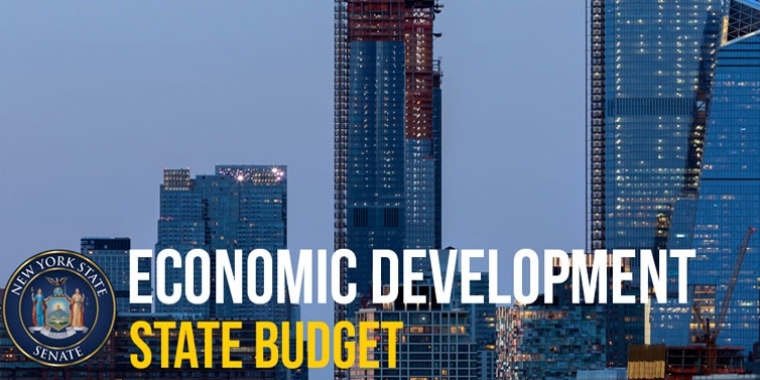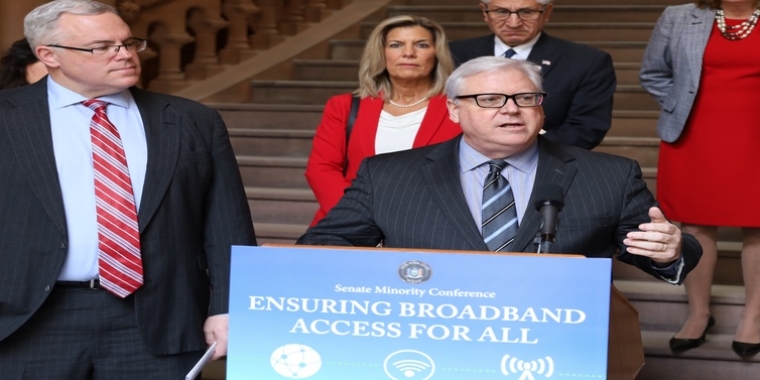
O’Mara: New State Budget Will Increase Funding to Compensate Direct Care Professionals
March 28, 2017
-
ISSUE:
- persons with disabilities

Albany, N.Y., March 28—State Senator Tom O’Mara today hailed an agreement between both houses of the Legislature and Governor Andrew Cuomo to provide increased funding in the final 2017-2018 state budget to compensate direct service professionals (DSPs) for the important work they do to support persons with disabilities.
The Senate and Assembly recently included $45 million in their respective “one-house” budget plans for the increased funding. Earlier today, at an advocates’ “Ring of Care” rally at the Capitol, the governor announced his support for providing $55 million in increased funding for the DSPs.
O’Mara applauded the announcement that the new state budget will help appropriately adjust salaries at not-for-profits that employ workers who provide state services for individuals with autism, serious brain injury, cerebral palsy, Down syndrome, and other developmental disabilities.
“This has been an absolute priority all along for me and many of my colleagues. We cannot afford to risk the health and well-being of persons with disabilities because New York State fails to invest in a stable, long-term workforce of trained and skilled direct care professionals,” said O’Mara, a member of the Senate Finance Committee.
Currently, many direct service professionals (DSPs) earn an average of $10-$13 per hour – just above the state’s minimum wage. Last year, the state implemented minimum wage increases that did not provide funding to account for the “compression factor” - the need to increase the salaries for more experienced DSPs and supervisors in order to maintain the current salary gap with minimum wage workers. Without new funding provided to the DSP employers providing services on behalf of the state, the salary gap will compound the existing high turnover rate among those providing these critical services, and lead to significantly increased vacancies as qualified individuals seek less strenuous minimum wage work.
A new state budget is scheduled to take effect on April 1, the start of New York’s new fiscal year.
Share this Article or Press Release
Newsroom
Go to Newsroom

